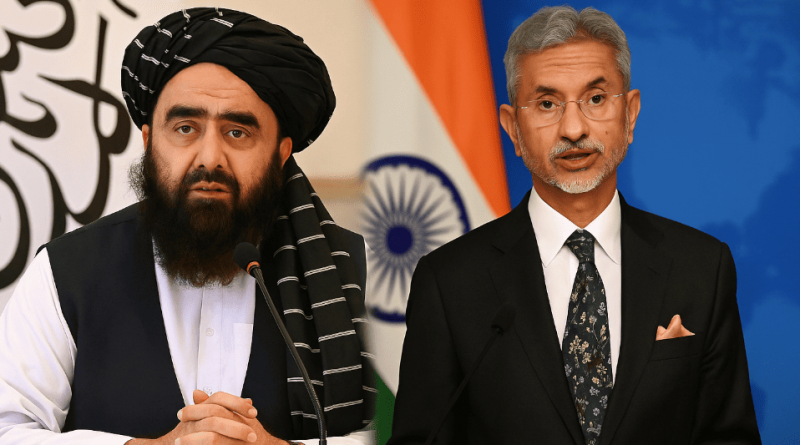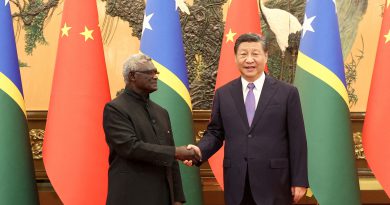Taliban FM Muttaqi to visit India in landmark diplomatic shift
New Delhi – In a move set to reshape South Asia’s geopolitical chessboard, Afghanistan’s Taliban government is preparing for its first-ever high-level visit to India since seizing power in August 2021. Afghan Foreign Minister Amir Khan Muttaqi will travel to New Delhi on October 9, after the United Nations Security Council granted him a temporary waiver from international travel restrictions.
The week-long visit, cleared for October 9–16, signals a pivotal chapter in India-Taliban engagement—an axis once considered unthinkable given decades of mistrust.
Months of quiet diplomacy
Indian officials have been laying the groundwork for this diplomatic breakthrough for months. Since January, Foreign Secretary Vikram Misri and senior South Asia envoy J.P. Singh have held multiple rounds of dialogue with Taliban representatives, often in neutral venues such as Dubai.
One such meeting in Dubai between Misri and Muttaqi focused on India’s humanitarian commitments—particularly strengthening Afghanistan’s fragile health sector and supporting refugees.
The real turning point, however, came on May 15, just hours after New Delhi concluded its successful Operation Sindoor against Pakistan-backed networks. External Affairs Minister S. Jaishankar held a landmark phone call with Muttaqi—the first ministerial-level contact since 2021—where he welcomed the Taliban’s condemnation of the Pahalgam terror attack in Indian-administered Kashmir and reaffirmed India’s “traditional friendship with the Afghan people.”
Earlier in April, Taliban officials had already signaled a shift by publicly condemning the same attack in a meeting with Indian envoys in Kabul, suggesting rare convergence between the two sides against Pakistan-sponsored terrorism.
Humanitarian aid as bridge-building
India has since expanded its humanitarian footprint in Afghanistan. New Delhi has delivered nearly 50,000 tonnes of wheat, 330 tonnes of medicines and vaccines, 40,000 litres of pesticides, and thousands of tents, blankets, and hygiene kits.
When a devastating earthquake struck Afghanistan in September, India was among the first to respond, airlifting 1,000 family tents, 15 tonnes of food supplies, and 21 tonnes of emergency medical aid. These relief efforts underscore India’s strategy of engaging the Afghan people directly, bypassing geopolitical hesitations.
Taliban authorities, sources confirm, have also provided India with a list of formal requests—ranging from energy cooperation to infrastructure support—indicating Kabul’s readiness to broaden ties beyond humanitarian channels.
A setback for Pakistan
Muttaqi’s visit is being closely watched in Islamabad, where policymakers see the development as a direct erosion of Pakistan’s influence over Kabul. Relations between Pakistan and the Taliban have soured this year, particularly after Islamabad deported more than 80,000 Afghan refugees back across the border, sparking anger in Kabul.
For decades, Pakistan has positioned itself as the Taliban’s primary patron, with many Taliban leaders educated in its Deobandi seminaries, particularly Darul Uloom Haqqania in Akora Khattak. But the current rift has opened diplomatic space for India to step in—something analysts say Pakistan did not anticipate.
India’s strategic gamble
For New Delhi, engaging the Taliban is a calculated risk. On one hand, it allows India to protect its long-term security interests in Afghanistan, counter terror threats emanating from the region, and blunt the combined influence of Pakistan and China. On the other, it requires navigating sensitivities, given the Taliban’s contested legitimacy and internal human rights record.
Yet officials argue that isolation is no longer an option. “We cannot afford to ignore Kabul,” a senior Indian diplomat was quoted as saying. “Engagement is the only way to protect our security and humanitarian interests.”
A new chapter in South Asia
Muttaqi’s planned meeting with Jaishankar on October 10 could prove decisive in setting the tone for this emerging relationship. While both sides are likely to proceed cautiously, the symbolism of an Afghan foreign minister under the Taliban walking into New Delhi is not lost on observers.
If successful, the visit may well redraw South Asia’s balance of power, tilting Kabul closer to India and away from Pakistan. It would also mark a striking reversal: a Taliban once nurtured by Islamabad now seeking space with its historic rival.
As the region braces for this diplomatic milestone, one thing is clear—the Taliban’s outreach to India is not just a courtesy call. It is a signal that Afghanistan, under Taliban rule, is recalibrating its foreign relations in ways that could echo far beyond Kabul and New Delhi.



